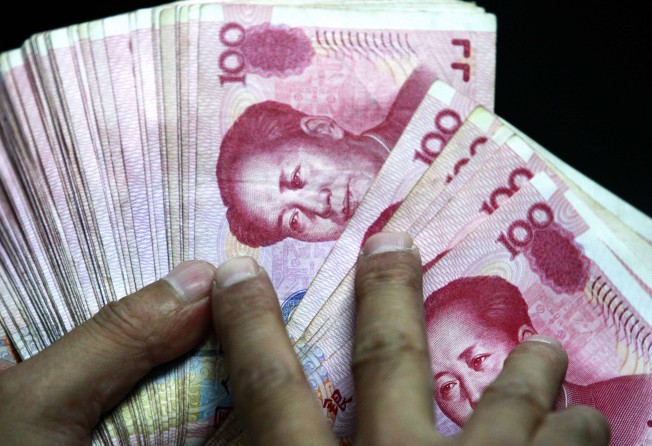China’s small banks vulnerable to bond sell-off, analysts say
Bank of China report estimates a 3pc bond price decline will hurt banks’ net profits by an average 2pc; Bank of Nanjing and Ping’An bank could see 6.8pc, 4.7pc falls

The pressure on Chinese bonds is set to hit banks in the short term, analysts say, with smaller banks particularly vulnerable should yields rise and liquidity tighten.
Nonetheless, the fact that the People’s Bank of China still seems able and willing to step in, means that any major crisis remains some way off still.
On Friday, yields of Chinese 10-year government bonds stood at 3.01 per cent, down from a high of 3.46 per cent earlier in the month, but still higher than at any point in 2016 before early December.
Bond yields move inversely to their price. This means that one short term impact of rising yields and falling prices on banks is that they will lose out if they have to sell the bonds that they already hold.
A recent report from Bank of China International (BoCI) reseachers led by Yuan Lin estimates that a 3 per cent bond price decline would hurt banks’ net profits by approximately 2 per cent.
The exact size of the loss would depend on the number of bonds banks could keep until maturity, as opposed to those they would have to sell to meet liquidity requirements.
Not all banks will be affected in the same way, and the BoCI analysts found that the impact on larger Chinese banks would be much less than on their smaller counterparts.
Under this scenario, Bank of Nanjing would see its 2016 net profits fall by 6.8 per cent and Ping’An bank by 4.7 per cent, the analysts calculated, where as the effect on China Construction Bank, and Bank of China’s profits would be just 0.8 per cent and 1 per cent respectively.
The higher yield environment also brings with it problems for banks that rely heavily on short-term borrowing to fund their activities.
“Chinese banks are finding it increasingly difficult to rely on cheap financing as depositors opt for higher-yielding options in the shadow banking market. This has put pressure on banks to tap the bond market for their asset liability management,” said a report from Natixis Global Asset Management.
With bond yields rising, that’s become more expensive, and again is a particular problem for smaller banks.
“The bond market deleveraging and liquidity squeeze brings liquidity risks (especially for small banks which rely heavily upon wholesale funding),” said Yuan in the Bank of China International report.
However, he adds that these concerns can be assuaged by the People’s Bank of China.
“We believe the central bank will inject sufficient liquidity before the risks spread, as the avoidance of systemic risks is the central government’s top priority,” he said.
In the medium term, banks should benefit from rising yields as these would mean better returns on new investments.
Again however, this is better for larger banks than smaller ones as their better capital positions enable them to enlarge their bond exposures when yields turn attractive.
“We believe that Industrial and Commercial Bank of China, China Construction Bank and Bank of China will be less negatively impacted in the short term due to rising bond yields,” Yuan wrote.
“In the long term, ICBC and CCB should benefit from rising bond yields. Bank of Nanjing and Ping An Bank will be negatively impacted.”